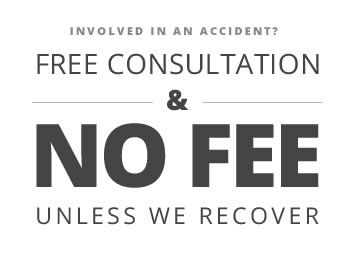In a Baltimore County, Maryland car accident case, negligence is a term attributed to the conduct of the responsible party that presents a risk of harm to another person. Victims can sue the negligent individual for damages related to their injuries, including costs of medical treatment, pain and suffering, and lost wages. However, under state law, a victim may not be able to recover compensation if he or she bears some responsibility in the accident. If you’ve been injured in a car crash and may be partly to blame, talk to a Maryland car accident lawyer right away about the exceptions to the harsh rule of contributory negligence.
Contributory Negligence as a Defense in Maryland Car Accident Cases: Contributory negligence focuses on the conduct of victims and whether their actions were a factor in the resulting injuries. In Maryland, contributory negligence is a complete bar to damages when the person who suffers harm is found to be partially at fault. As such, it is a defense that the responsible party can raise to avoid liability entirely.
The doctrine of contributory negligence is quite tough, because even a slight amount of fault on behalf of the victim eliminates the right to compensation. This controversial rule has been the subject of many debates by lawmakers, but until the legislature changes the contributory negligence rule, you may be denied compensation for your injuries.
Exceptions to the Contributory Negligence Rule: You may still be able to recover financially despite being partly to blame if you fall within one of the exceptions to the contributory negligence doctrine.
- Last Clear Chance Doctrine: If the responsible person had one final opportunity to avoid causing any injury, but failed to act within that window, contributory negligence rules do not apply. An injured person can still pursue that individual to recover compensation.
The last clear chance doctrine places a duty upon the responsible party. He or she is charged with knowledge that continuing along a course of action will result in injury to another person – a person who is not in a position to avoid the risk. If the actor still proceeds with the conduct and fails to change the course of action, contributory negligence will not bar the injured party from recovering.
- Intentional Acts: The liable party cannot raise contributory negligence as a defense if he or she acted intentionally in a car accident case.
- Maryland’s Seat Belt Law: Maryland’s transportation laws do require drivers and front seat passengers to wear a seat belt when the vehicle is in operation; however, failure of a person to wear the required safety harness may not be considered evidence of contributory negligence.
Contributory negligence acts as a complete bar to financial recovery if you’re partly to blame for your own injuries – even if your conduct is minimum compared to the responsible party. Fortunately, there are exceptions that may still allow you to obtain compensation, but you need to work with an attorney that has extensive experience in Maryland car accident cases. A skilled lawyer can overcome the defense of contributory negligence under the right circumstances, ensuring you can still recover damages. For more information or to review the details of your case, please contact attorney Michael A. Freedman.
See Related Blog Posts:
Common Injuries in Baltimore County, MD Car Accident Cases
Factors that Affect Compensation in Settlement Negotiations


